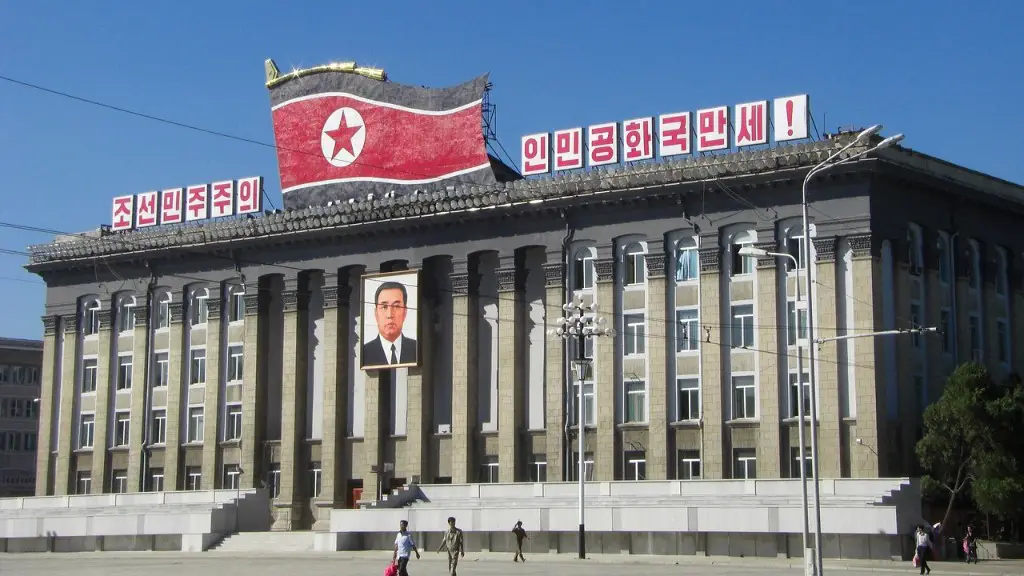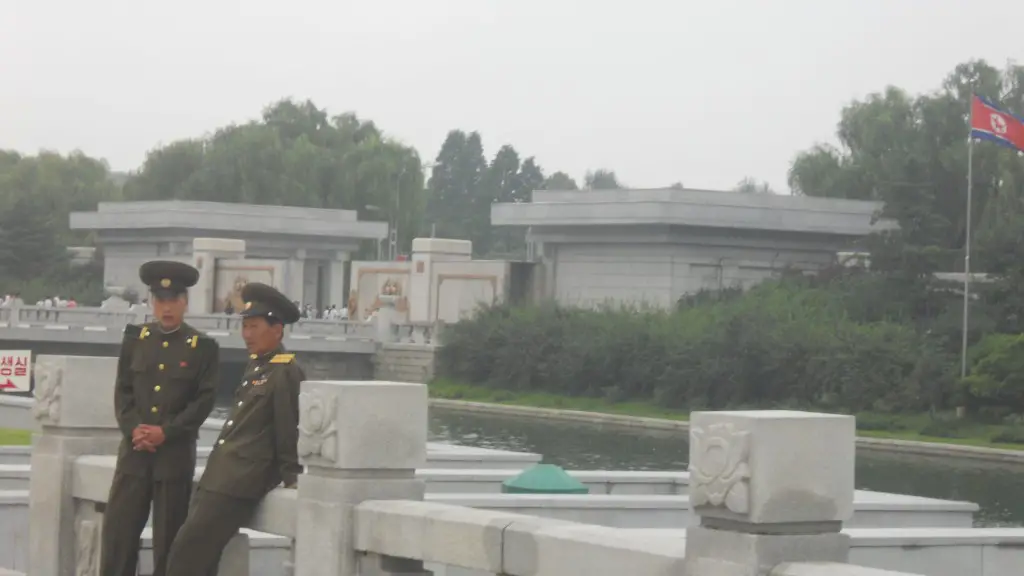The United Nations was established in 1945 in the wake of the Second World War, with the aim of maintaining peace and preventing further wars. Since then, the UN has grown and expanded, taking on the mantle of an international peacemaker and mediator. Its stated aim is to promote international peace, security and prosperity, but in the case of North Korea, it has been largely unsuccessful in achieving these goals.
North Korea is an isolated and authoritarian state which has been ruled by a single family for over seventy years. It has long been a thorn in the side of the international community, with declining human rights, nuclear ambitions and international sanctions having kept it largely out of diplomatic negotiations with the United Nations. The primary reason why the United Nations has been unable to help North Korea is the hostile relationship between the government of the Democratic People’s Republic of Korea and its democratic neighbors, such as South Korea and Japan. This mutual animosity has made it difficult for the UN to facilitate meaningful talks between the two sides, as well as contribute to peace-building efforts in the region.
Another major factor which has contributed to this problem is a lack of consensus within the United Nations on how best to handle the situation in North Korea. In recent years, there has been a push for more economic sanctions and diplomatic isolation, but many nations have been reluctant to take such measures since they can often lead to further suffering for the people of North Korea. As such, the UN has often been caught in the middle, unable to take meaningful action on either side.
Finally, even if the UN were able to break through these diplomatic barriers, it would still face another major obstacle: the North Korean government itself. The North Korean regime has always been highly suspicious of outside influence, viewing any attempt to bring about meaningful change as a direct threat to its survival. This has often led to the North Korean government actively thwarting any efforts by the United Nations to interfere in its internal affairs, making it even more difficult for the UN to have any meaningful impact.
Lack of Resources
In addition to the political obstacles, there are also practical obstacles preventing the United Nations from helping North Korea. While the United Nations has the means to deliver humanitarian assistance, it lacks the resources necessary to deliver large-scale assistance to the North Korean people. Due to international sanctions and the isolation of North Korea, it has been difficult for the UN to access the funds needed to carry out its operations in the country.
Furthermore, the UN has been hampered in its efforts to support economic reform in North Korea because of the nature of the North Korean economy itself. The North Korean economy is largely isolated from the global economy, which means that even if the UN were able to provide assistance, it could be limited in its impact. This limitation is further compounded by the extensive network of corruption and political patronage within the North Korean government, which has allowed it to maintain control of the country’s economy.
Finally, there is the ever-present nuclear threat which complicates any efforts to help North Korea. The North Korean government has been adamant in its refusal to abandon its nuclear ambitions, making any diplomatic solution impossible until this issue is resolved. As such, the UN has had to step back and allow for direct negotiations between North Korea and its neighbors.
International Community
While the United Nations has been largely unsuccessful in its efforts to help North Korea, it is not the only international body trying to address the North Korea crisis. Over the years, a number of other countries and international organizations have tried to engage with the North Korean government in order to bring about some level of change. Organizations such as the European Union and the International Atomic Energy Agency have been working closely with North Korea in order to promote nuclear non-proliferation, while other countries have been providing economic assistance in order to reduce the impact of international sanctions.
However, it is important to note that these efforts have often been hampered by the same obstacles faced by the United Nations. Given the hostile relationship between North Korea and its neighbors, any attempt to engage in meaningful dialogue has often been met with resistance from either side. Similarly, while economic assistance has been provided, this has often been limited in scope and has done little to improve the lives of ordinary North Koreans.
In addition, these efforts have been further complicated by the lack of trust between North Korea and the international community. The North Korean government has long viewed any outside interference as an attempt to push for regime change, and it has been reluctant to cooperate in any meaningful way with its democratic neighbors. This distrust has often hindered any attempts to build trust and dialogue, making it difficult for any entity, including the United Nations, to bring about positive change.
Sanctions and Diplomacy
Given the difficulties faced by the United Nations in its efforts to help North Korea, it is clear that more creative solutions are needed in order to bring about meaningful change in the country. One potential solution may be to combine economic sanctions with diplomatic engagement. Sanctions have so far been largely ineffective and have had a devastating impact on the people of North Korea. However, if these sanctions are coupled with a more targeted and engagement-focused diplomatic strategy, they may be more effective in bringing about positive change.
Another option may be to establish direct links between North Korea and its democratic neighbors. This could involve the United Nations setting up informal channels of communication between North Korea and South Korea and Japan in order to facilitate dialogue and cooperation. Such a measure could go some way towards reducing tensions and allowing for meaningful dialogue between the two sides.
Finally, the United Nations could also take a role in encouraging North Korea to open up to the international community. This could involve facilitating technology transfers, training North Korean citizens in modern economic development techniques and even allowing for foreign investment in the country. Such an approach could help the North Korean economy to grow and open up to the world in a way that is beneficial for all its citizens.
Take Away
In conclusion, it is clear that the United Nations has had limited success in its attempts to help North Korea. While it has made some progress, this has been hampered by a variety of factors, including political obstacles, a lack of resources and a lack of trust between North Korea and the international community. Going forward, it may be necessary to explore more creative solutions in order to bring about meaningful change in the country. This could involve combining economic sanctions with a more diplomatic approach, as well as promoting trust-building and economic development.
Conclusion
The situation in North Korea is a challenging one, and it is unlikely that the United Nations alone will be able to bring about positive change in the country. However, despite these difficulties, the UN continues to work towards its goal of international peace and security and it remains an important part of the international community’s efforts to resolve the situation in North Korea. As such, it is important that the international community continues to support the United Nations in its work.



